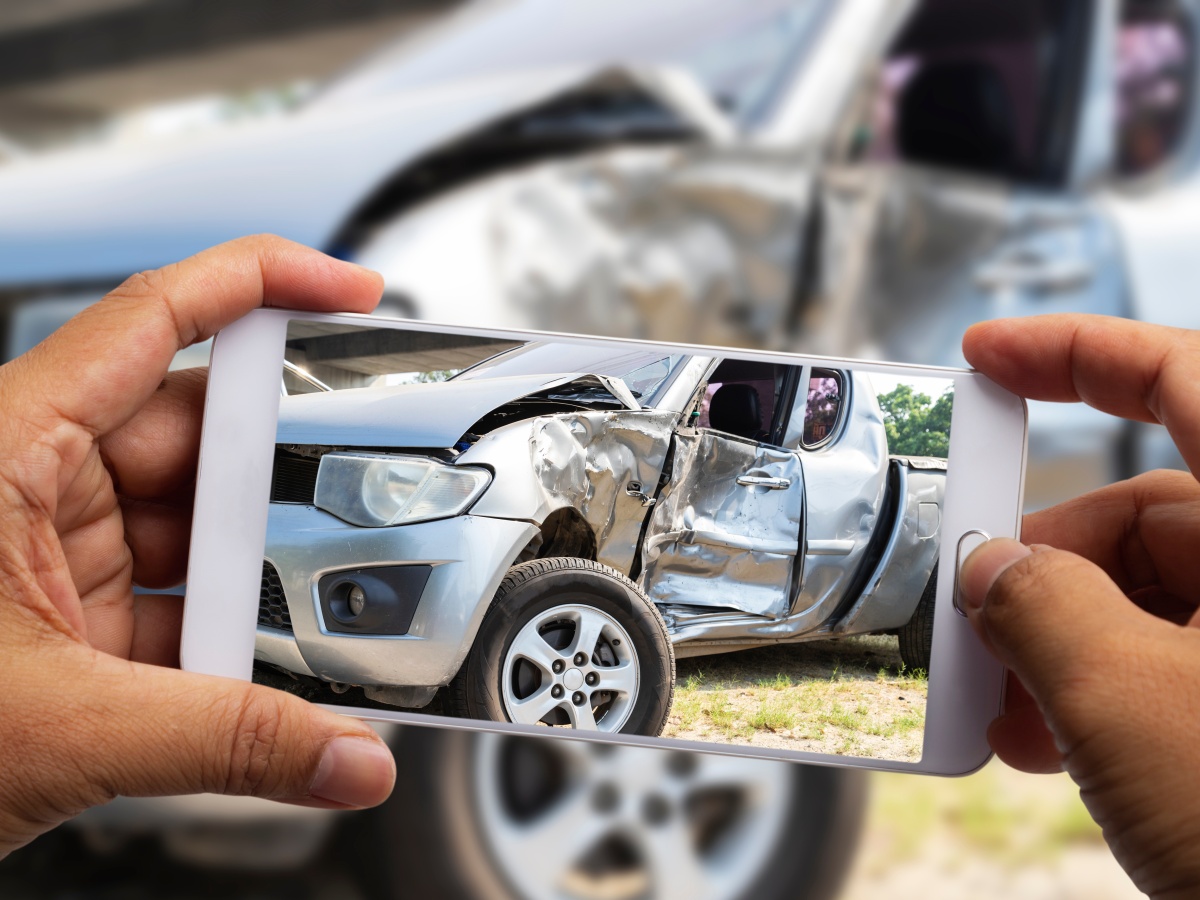A California Injury Lawyer’s Guide to Auto Accident Claims

Dealing with Insurance Companies in Auto Accident Claims
Navigating the aftermath of an auto accident can be a complex process, particularly when it comes to dealing with insurance companies. Insurance adjusters are trained professionals whose primary goal is to protect the financial interests of the insurance company they represent. This often means they will attempt to minimize the payout on a claim or deny it outright.
It’s important to remember that the initial offer from an insurance company is typically a starting point for negotiations, not the final word on what your claim is worth. Insurance adjusters may use various tactics to lower the value of your claim, including disputing the severity of your injuries or arguing that you were partially at fault for the accident.
Having an experienced auto accident attorney on your side can be invaluable in these situations. Your attorney can handle communications with the insurance company on your behalf, ensuring that your rights are protected. They can also help you understand the true value of your claim and negotiate effectively to seek the maximum compensation you are entitled to under California law.
Understanding Legal Fees for Auto Accident Claims
Legal fees are a common concern for individuals seeking representation after an auto accident. The cost of hiring an attorney can seem daunting, particularly when you are dealing with medical bills and other expenses related to your accident. However, most personal injury attorneys, including those at California Injury Lawyer, work on a contingency fee basis.
A contingency fee arrangement means that you do not pay any attorney fees upfront. Instead, the attorney’s fees are contingent (or dependent) on the outcome of your case. If your attorney is successful in obtaining a settlement or verdict on your behalf, they will receive a percentage of the award as their fee. If they do not win your case, you do not owe any attorney fees.
This arrangement allows you to access high-quality legal representation without the need for immediate out-of-pocket expenses. It also aligns your interests with those of your attorney: they only get paid if they win your case. However, it’s important to discuss the specifics of the fee arrangement with your attorney before signing a representation agreement.
Communication and Representation in Auto Accident Claims
The relationship between an attorney and their client is crucial to the success of a legal case. Regular, clear communication is a key aspect of this relationship. When you hire an attorney to represent you after an auto accident, you should expect them to keep you informed about the progress of your case and any important developments.
This communication may take various forms, including phone calls, emails, or in-person meetings. Some law firms may also provide online portals where clients can access documents related to their case and receive updates. It’s important to discuss your communication preferences with your attorney at the outset to ensure that your expectations align.
In addition to regular updates, your attorney should also be available to answer any questions you have about your case and the legal process. They should explain complex legal concepts in a way that you can understand and provide you with the information you need to make informed decisions about your case.
The Immediate Aftermath of an Auto Accident
The moments immediately following an auto accident can be chaotic and confusing. However, the actions you take during this time can have a significant impact on any subsequent legal claim you may choose to pursue.
One of the first things you should do after an auto accident is seek medical attention, even if you do not believe you have been seriously injured. Some injuries, such as whiplash or internal injuries, may not present symptoms immediately but can have serious long-term consequences if left untreated. Seeking medical attention promptly can also help to establish a link between the accident and your injuries, which can be crucial in a personal injury claim.
Preserving evidence from the scene of the accident is also important. This may include taking photographs or videos of the scene, your vehicle, and any visible injuries you have sustained. If there were any witnesses to the accident, try to get their contact information as they may be able to provide statements that support your claim.
Finally, be cautious when speaking with the other driver’s insurance company. They may attempt to get you to admit fault or downplay your injuries, which could harm your claim. It’s generally a good idea to speak with an attorney before providing a statement to the other driver’s insurer.
Building Your Auto Accident Case
Building a strong case for compensation after an auto accident involves gathering and presenting a range of evidence. This may include medical records, photographs of your injuries, witness statements, and documentation of your expenses and financial losses related to the accident.
Medical records are often a key piece of evidence in auto accident claims. These records can provide a detailed picture of your injuries and the treatment you have received. They can also help to establish the severity of your injuries and the impact they have had on your life.
Photographs can also be powerful evidence in an auto accident claim. Photographs of your injuries can help to illustrate the pain and suffering you have experienced. Photos of the accident scene and the damage to your vehicle can also provide important context and help to establish how the accident occurred.
Witness statements can be valuable in corroborating your account of the accident and providing additional perspectives on how the accident occurred. If there were other people present at the scene of the accident, your attorney may reach out to them to obtain statements.
Finally, documentation of your expenses and financial losses can help to establish the financial impact of the accident. This may include medical bills, receipts for out-of-pocket expenses such as medications or mobility aids, and documentation of lost wages if you were unable to work due to your injuries.
Understanding the Legal Timeline for Auto Accident Claims
The legal process can often be lengthy and complex. Understanding the timeline of a personal injury claim can help to set your expectations and prepare you for the road ahead.
One of the first legal concepts you should be aware of is the statute of limitations. This is a law that sets a deadline for filing a lawsuit. In California, the statute of limitations for personal injury claims is generally two years from the date of the accident. However, there are some exceptions to this rule, so it’s important to discuss your specific situation with an attorney.
Once a lawsuit is filed, there are several stages before the case may reach a trial. These include the discovery process, where each side investigates the other’s legal claims and defenses; settlement negotiations, where the parties attempt to resolve the dispute without a trial; and potentially a trial, where a judge or jury decides the outcome of the case.
The duration of a personal injury case can vary widely depending on a range of factors, including the complexity of the case, the amount of damages at stake, and the willingness of the parties to settle. While some cases may settle within a few months, others may take years to reach a resolution.
Potential Damages and Compensation for Auto Accident Claims
If you have been injured in an auto accident due to someone else’s negligence, you may be entitled to compensation for your injuries and other losses. This compensation, known as damages, can cover a range of losses, including medical expenses, lost wages, and pain and suffering.
Medical expenses can include the cost of emergency treatment immediately after the accident, as well as ongoing medical costs such as physical therapy, rehabilitation, and any necessary surgeries. If your injuries will require future medical care, this can also be included in your claim.
Lost wages can cover any income you lost as a result of the accident, including if you were unable to work while recovering from your injuries or if your injuries prevent you from returning to your previous job. If your injuries will impact your ability to earn income in the future, you may also be able to claim loss of future earning capacity.
Pain and suffering damages are intended to compensate you for the physical pain and emotional distress caused by your injuries. These damages can be more subjective and can vary significantly depending on the specifics of your case.
In some cases, you may also be able to claim property damage, such as the cost of repairing or replacing your vehicle, and punitive damages, which are intended to punish the at-fault party and deter similar behavior in the future.
Preparing for the Possibility of a Trial
While most personal injury cases settle out of court, it’s important to be prepared for the possibility of a trial. A trial can be a lengthy and complex process, but it can also provide an opportunity to seek justice and full compensation for your injuries.
During a trial, both sides will have the opportunity to present their case to a judge or jury. This will include presenting evidence, calling witnesses, and making arguments about the law and the facts of the case. The judge or jury will then make a decision about who is at fault for the accident and how much compensation you should receive.
Having an attorney who is experienced in trial litigation can be crucial if your case goes to trial. Your attorney can help to prepare your case for trial, including gathering evidence, preparing witnesses, and developing a compelling argument for your right to compensation.
Conclusion to A California Injury Lawyer’s Guide to Auto Accident Claims
Understanding your rights and responsibilities after an auto accident in California can be a complex process. However, with the right legal guidance, you can navigate this process and seek the compensation you deserve. At California Injury Lawyer, we have extensive experience representing auto accident victims and a deep understanding of California personal injury law. If you have been injured in an auto accident, don’t hesitate to reach out to us at (844) 584-8444 for a free consultation. We are here to help.


